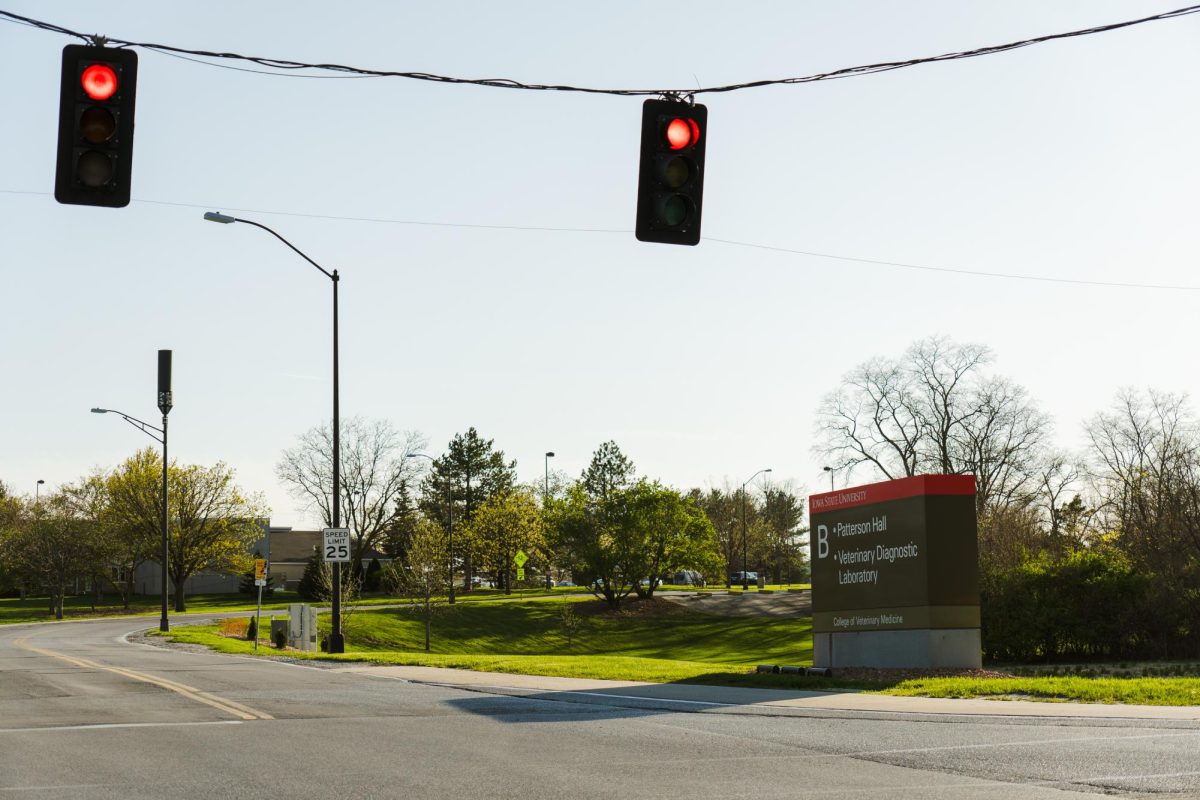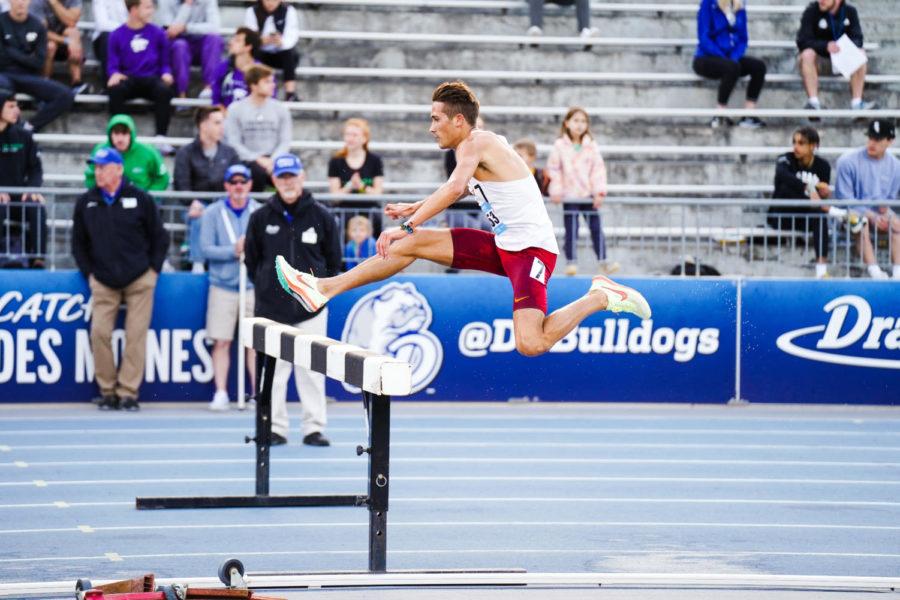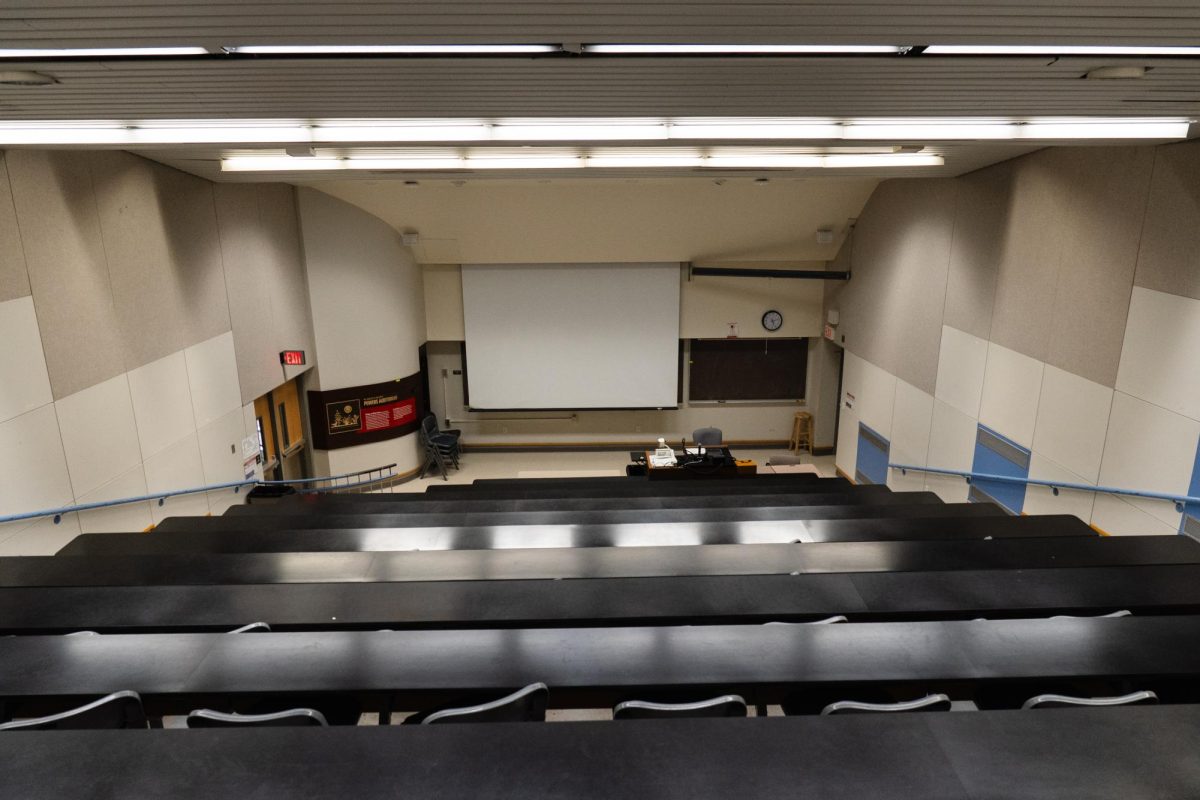A night surveying the streets with DPS
March 10, 1998
I wasn’t excited at all. Words that better described my feelings were unwilling, reluctant and nervous. I didn’t know what to expect.
The assignment was to ride around with a university cop, better known as an officer from the Department of Public Safety.
The letters DPS seem to have a bad connotation on this campus. This most likely stems from the 1997 Homecoming incident, personal experiences or maybe a few parking tickets.
I have to admit, I had some of these same stereotypes, which was probably the reason I was so unwilling to participate. I was even reluctant to share what I was doing with my buddies. I guess I expected them to think I was siding with DPS.
“There’s a negative attitude towards DPS on this campus, almost as if we’re out to get them,” said Lieutenant Isra Harahap.
I was assigned to ride with Harahap, the third shift supervisor for DPS. The guys called him Hap. By his own admission, he is young for the position of lieutenant — he’s only 26 years old and a recent graduate of Iowa State.
“I started as a student security officer in the residence halls,” he said. “I’ve always been interested in law enforcement, so when an opening came up, I took it.”
I could tell right away that I would like the assignment. Hap was a sincere guy and erased a lot of those stereotypes.
There are three shifts during a 24-hour period: 7:30 a.m. to 3:30 p.m., 3:30 p.m. to 11:30 p.m. and 11:30 p.m. to 7:30 a.m. I rode on a Thursday night during the third shift, otherwise known as the night shift. On every shift, a minimum of three officers and one lieutenant are on duty.
“There are officers patrolling the campus 24 hours a day,” Hap said.
I really wasn’t clear about what to expect of the night’s activities. I just hoped we wouldn’t be visiting any Durham computer labs.
We hit the road at 12:18 a.m. I was riding with the shift supervisor, so I was treated to the finest DPS car they own, equipped with a radio, a radar for judging speed of oncoming cars and a video camera.
“The video camera starts recording every time I turn my lights on. It is used for record and the officer’s protection,” Hap said. He added that DPS is trying to get a grant that would equip every car with this technology.
Hap, being the shift supervisor, wasn’t assigned a specific sector of Ames, as the other officers were. “I just drive around Ames near campus, concentrating on the busy spots,” he said.
We drove basically the same route all night, covering Lincoln Way, Elwood Drive, Beach Avenue and Welch Avenue.
The first thing I noticed were the many bad looks we got from students on Welch.
“You’ll basically get two kinds of reactions,” Hap said. “One is a frightened look, like the student thinks I’ve caught him doing something wrong, and the other is a look of genuine disgust. Sometimes I try to get a wave, but it rarely happens.”
I think it would be really hard to be hated for just doing your job.
This is sort of ironic, because the same officers that many students think they hate are here for their safety.
Either students are misinformed or don’t even care to find out what DPS can do for them, Hap said. “We just want people to feel comfortable attending ISU,” he said.
In addition to patrolling campus, DPS officers have a wide range of other responsibilities, including transporting students, directing traffic, assisting stranded motorists, changing tires and even unlocking doors. Parking is separate from the patrolling division. “A DPS officer’s first job is to help students and keep them safe,” said Joel Swanson, one of Hap’s co-workers.
Our first action came at 1:08 a.m. Hap witnessed a man run a stop sign. After catching up with the guy, a scene that resembled a “Cops” episode, he pulled him over on Elwood Drive. I was impressed with Hap’s professionalism. He treated the offender like a gentleman, even offering him his uniform coat at one point.
He performed sobriety and breathalyzer tests, determining that the man was not legally drunk.
After running a license check, Hap let him go with a warning — hardly the act of an officer who’s out to get students.
I noticed how cautiously Hap had approached the car. The reason: ISU DPS officers are not armed. Because of this, Hap said, an officer always needs to be cautious.
Swanson said DPS officers have not carried guns since a Board of Regents decision in the early ’70s, which also affected the University of Iowa and the University of Northern Iowa.
Along with ISU, these universities are three of only seven in the country that have unarmed university police.
DPS officers do not like the fact that they are unarmed, Hap said.
“I think it’s unfair to the campus community. We are here for their protection, yet we are unarmed. In situations where firearms are involved, students and officers are put at a greater risk,” he said.
Even though they do not carry them, DPS officers are still trained to use firearms, and they have to qualify themselves in this area every six months.
Even though they are unarmed, Hap said, officers are called — and respond — to situations involving firearms. “We will always respond and see if anything can be done; however, we will never jeopardize our safety or the safety of others,” he said.
Hap said the night’s activities generally pick up around 2:00, when the bars close.
“I make sure I’m near Welch when the bars close. It’s not that I’m wanting to bust anyone for illegal activity, I just want to make sure they get home all right,” he said.
The night I rode was a fairly insignificant one.
We didn’t catch the carjacker like I was hoping; there were only a few pullovers and sobriety tests.
A few times we passed other DPS cars. I got nervous, as I always do when I see one. I don’t know why. After all, I was in one myself.
The slow night gave me a chance to talk a lot with Hap.
He told me he enjoyed my company, because it gave him someone to talk to. Hap said that ride-alongs are frequent and open to anyone.
“I encourage anyone to come and get to know your university police. You can see for yourself what we are doing for the campus,” he said.
The ride-along was a great experience, and I’m glad I ignored my inhibitions and did it. I witnessed a lot of things and came to a lot of conclusions about DPS, students and myself.
So, the next time you see a patrol car, don’t be frightened, don’t be nervous and don’t be mad.
They are here for our safety. You might even want to wave.
















